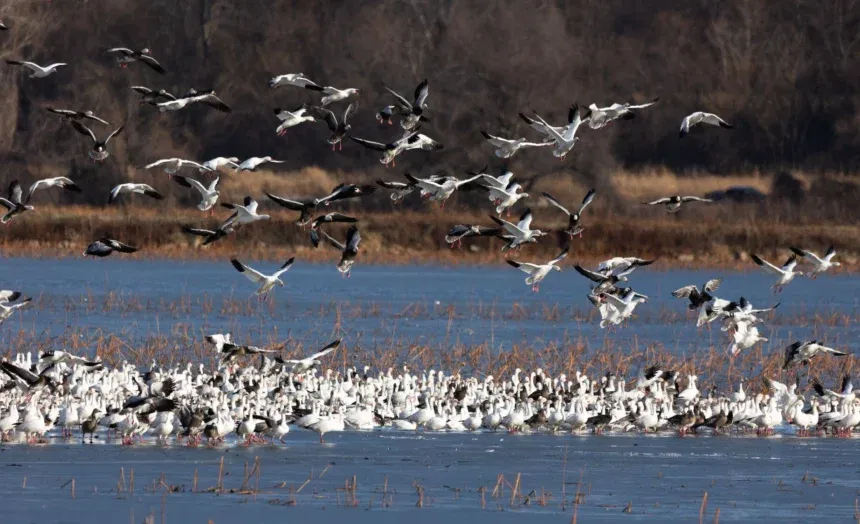Missouri hunters still encouraged to take precautions amid bird flu

Conservation officials are advising hunters to continue using precaution even as bird flu cases in waterfowl have dropped off since December.
While bird flu cases have decreased since the December holidays -- largely due to migratory snow geese heading south -- Missouri Department of Conservation officials say waterfowl hunters should monitor hunted birds amid an outbreak of a highly-pathogenic avian influenza, also known as bird flu, that began in mid-2024.
In Northwest Missouri, several cases were recorded across Andrew, Holt, Gentry and DeKalb counties between late December and late January.
Missouri's falconry hunting season opened on Feb. 11 and runs until March 10 for ducks, coots and mergansers, hunters are being advised to take proper precautions as an added measure.
MDC maintains that avian influenza does not present an immediate public health concern, though on rare occasions it has infected humans and other animals.
According to the MDC, it is safe to eat poultry and wild game as normal cooking temperatures are hot enough to kill the virus if present. Meat should be cooked to an internal temperature of 165 degrees Fahrenheit.
Avian influenza, commonly referred to as bird flu, spreads as birds along the North American flyways intermingle with infected birds from Europe and Asia. The virus is transmitted from bird to bird through fecal droppings, saliva and nasal discharge. There is a risk for spillover from wild birds into domestic poultry and then back again from poultry to wild birds, resulting in further spread.
The MDC said hunters should report any large waterfowl die-offs to MDC and practice good hygiene habits to prevent carrying the virus from site-to-site.
Though HPAI does not present an immediate public health concern, MDC recommends the following:
- Do not touch dead geese, waterfowl, or other bird species.
- Report any sightings of dead geese or large waterfowl die-offs to MDC online at http://short.mdc.mo.gov/4KD
- Ensure that pets do not come into contact with dead animals to help prevent the spread of disease.
- If you have inadvertently come into contact with a dead goose, wash your hands thoroughly and contact a healthcare professional if you experience any unusual symptoms.
Highly pathogenic avian influenza can infect all birds, including wild birds like hawks and geese. The virus can also infect domestic birds such as chickens and turkeys.
It is not necessary to remove backyard bird feeders. Songbirds do not appear to be major carriers of this virus, so are at low risk from this avian influenza strain.




